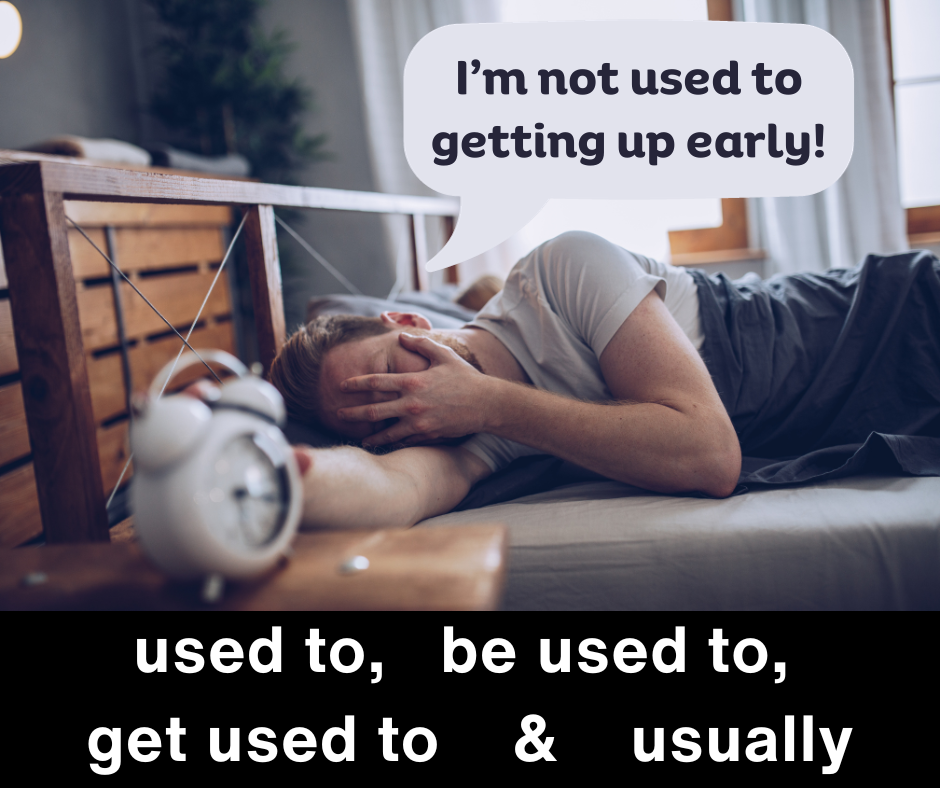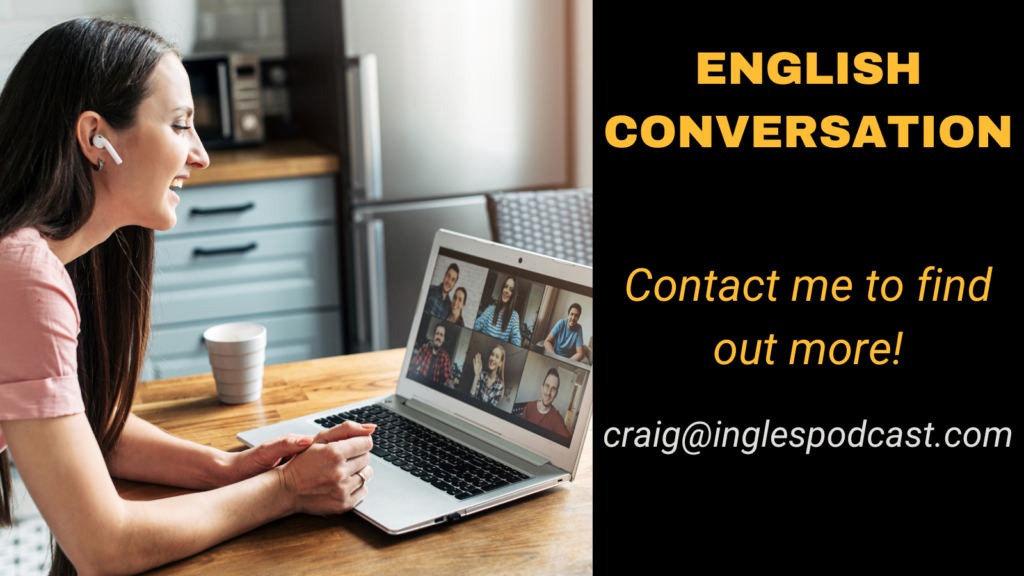
In this episode, you’ll learn how to use used to, be used to, get used to and usually. These expressions are often confused in English so we’ll explain the difference, give you some examples in context and help you with grammar, use and pronunciation.
Voice message from Juan from Colombia in Australia
How to use used to, be used to, get used to and usually
We spoke about this in episode 6 on January 31, 2014! https://inglespodcast.com/6
Used to (past)
“Used to” always refers to the past. Use it to talk about habits, states, or facts that were true before, but which aren’t true now.
Craig used to live in London.
Reza used to live in Belfast.
They both live in Valencia now.
They didn’t use to podcast when they first met.
Did Craig use to be a big Mickey Mouse fan?
Used to + infinitive (without ‘to’)
Name 3 things that you used to do when you were younger but you don’t do now.
Craig: 1. Play football 2. Drink whisky 3. Read fiction books
Reza: 1. Play cricket 2. Play in classical music groups 3. Cycle every day
You can also use “would” to talk about past habits, but NOT past facts or states.
When she was young she used to/would spend hours reading comics. (HABIT)
He used to be (XwouldX – INCORRECT) fat when I met him many years ago. ( STATE)
Craig used to live in London (STATE). He would go to work by bus every day. (HABIT)
Reza used to live in Belfast (STATE). He would cycle to work. (HABIT)
See episode 152 for more details and examples: https://inglespodcast.com/152

Contact Craig: [email protected]
Be used to
“Be used to” refers to the state of being familiar with, comfortable with, and accustomed to something.
“Reza and Craig are used to driving on the right now.”
In the UK, we drove on the left. In Spain, people drive on the right.
We’ve been driving on the right for more than 25 years. We’re used to it.
The verb ‘be’ changes depending on the tense and the subject. Use ‘not’ for the negative.
She was used to working at weekends.
I wasn’t used to eating so late when I first came to Spain.
We’re used to recording podcasts together.
It’s important to remember that the verb is in the -ing form after ‘be used to’:
I’m used to having a siesta.
Or just use a noun (phrase) or a pronoun:
I’m not used to this heat.
Are you used to the food?
I’m used to it.
Get used to
In 2014, we used the example “Reza is getting used to his first smart phone.”
Are you used to it yet?
“Get used to” can be used in all tenses (got used to, I’m getting used to, I will get used to etc.)
Get used to focuses on the process of becoming familiar with, comfortable with, and accustomed to something.
Did it take you a long time to get used to driving on the right in Spain?
“I moved in with my partner last month. We’re getting used to living together.”
This means my partner and I are learning how to live together. We are still becoming comfortable with our living arrangements.
It can take a long time to get used to someone’s habits when you first start living with them.
“Be used to” and “get used to” are similar phrases about being/getting accustomed to something.
“Used to” is separate because of its focus on the past.
Usually
“Usually” is an adverb of frequency like never, always, sometimes and often. We usually, although not always, place adverbs of frequency just before the main verb.
Craig usually has fruit for breakfast.
Reza never takes the last chocolate biscuit.
Craig doesn’t usually eat more than one or two biscuits a day.
Do you usually listen to us on Spotify or another platform?
Usually and used to are sometimes confused by learners of English.
XI used to speak English with my daughter because I want her to get used to hearing it while she’s still a baby.X INCORRECT!
Discussion
Did you use to believe anything that you don’t believe now?
Are you used to waking up before 6 am?
Is there any activity you didn’t use to like but now you do?
What is something you want to get used to?
What was the most difficult thing to get used to when you first moved to Spain?
What do you think is the most difficult thing for someone to get used to when they first move to the UK?
Why do you think some people find it so difficult to get used to new technology?
…and now it’s your turn to practise your English. Can you tell us 3 things that you used to do when you were younger that you don’t do now? What about something that took you a long time to get used to?
Send us a voice message. https://www.speakpipe.com/inglespodcast
Send us an email with a comment or question to [email protected] or [email protected]
This podcast is sponsored, in part, by mansionIngles.com. Visit the online store: https://store.mansioningles.net/
Thank you to our Patreon supporters. Join our Patreon program for as little as $1.50 per month and you get instant access to the transcriptions of this podcast. https://www.patreon.com/inglespodcast
Welcome to our new Patreon supporters who have joined us this month:
Esteban Sanchez
Maria Jose Cuenca Bonilla
Carcopu
Pablo Albert
In next week’s episode: How to Plan a Holiday; Vocabulary and advice you need before you go on a trip.
If you enjoyed this podcast, please tell your friends.
The music in this podcast is by Pitx. The track is called ‘See You Later’



